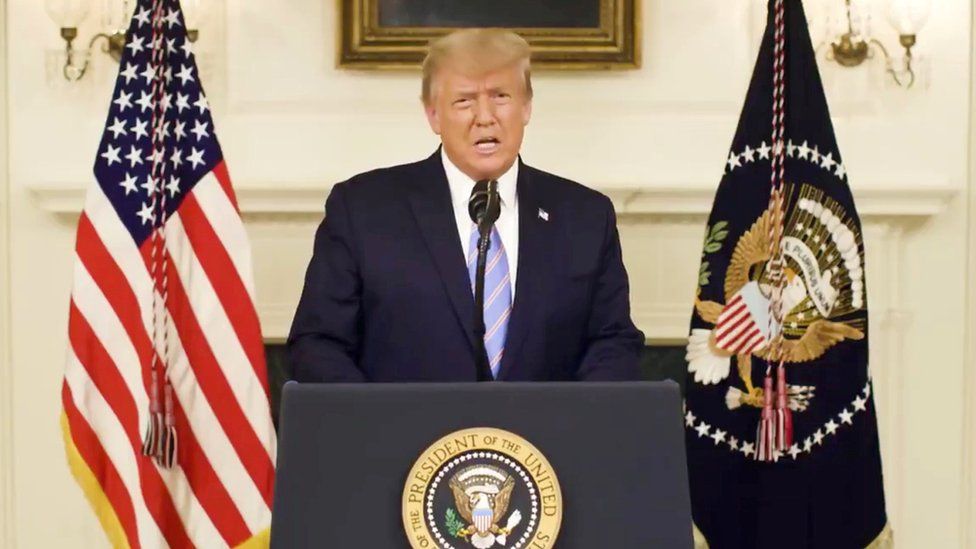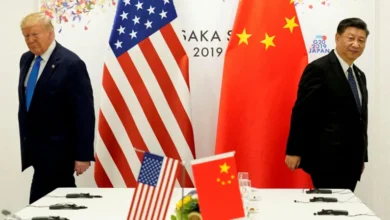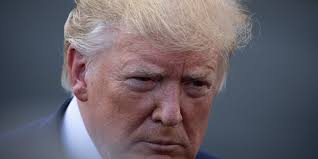Where Donald Trump’s four criminal trials stand after more delays

Donald Trump’s long journey through the American legal system took a few new twists and turns this week. And each new development is making it less and less likely that the former president will stand trial before he stands before the American people in November’s presidential election.
Here’s a look at the latest on each of the big prosecutions targeting Mr Trump and when, or if, they might begin.


New York document dump
Mr Trump’s New York City trial on charges that his hush-money payments to adult film star Stormy Daniels constituted business fraud and violated federal campaign finance laws was scheduled a week from Monday, on 25 March.
That’s no longer the case.
The US justice department just turned over more than 73,000 pages of documents related to its own hush-money investigations that the Trump legal team had subpoenaed back in January. Another 15,000 pages are still expected.
“Prosecutors have been stumbling a bit,” says John Coffee, a professor at Columbia University. He adds that the confusion and delays in producing documents make it seem as though the justice department and the New York district attorney’s office are feuding.
The former president’s lawyers requested a 30-day trial delay, which the New York prosecutors agreed not to block.
That’s just the start, though. Mr Trump’s lawyers want hearings into why the documents, which include witness interviews, took so long to produce. They also want an additional delay for time to review the new evidence and prevent the trial from starting on Passover and, for good measure, a dismissal of the case entirely.
Trial date: Originally scheduled for 25 March, on Friday it was delayed until April, at the earliest.


Fani’s choice
After days of tense legal hearings, the judge presiding over the sprawling 2020 election-interference case against Mr Trump and 18 of his co-defendants issued his decision on whether Fulton County District Attorney Fani Willis could remain in charge of the prosecution.
The answer was yes – but with a catch. Either she or Nathan Wade, the special prosecutor she hired – and had a romantic relationship with – would have to step aside. Mr Wade resigned on Friday.
Judge Scott McAfee said that there were “reasonable questions” about whether the two attorneys had testified untruthfully and an “appearance of impropriety” that had to be remedied.
While he ultimately concluded that evidence did not support removing the district attorney entirely, such language will provide plenty of ammunition for Mr Trump and his team to use in the court of public opinion, where they might be able to shape the views of prospective jurors.
“Everybody here is likely to be influenced by the news coverage of the judge’s decision,” says Adrienne Jones, an assistant political science professor at Atlanta’s Morehouse College. “It’s not likely people are ignorant of what’s happening.”
The judge’s announcement comes just a few days after he dismissed three of the 13 charges against the former president for being too vague. Prosecutors will have an opportunity to clarify and re-indict Mr Trump, however.
Trial date: The prosecution has proposed an 5 August start.


Classified files slow-walk
Down in Fort Pierce, Florida, Judge Aileen Cannon has been reviewing a series of attempts by Trump’s legal team to get the federal case against the president for obstruction of justice and mishandling classified documents dismissed.
On Thursday, she rejected one of the motions – but she must decide on six others and seems in no big hurry to do so.
She is also expected to issue a decision at some point on a schedule for when the trial will begin. At the moment, the start date is 20 May, but both the prosecution and Mr Trump’s teams have suggested pushing that back.
Ms Cannon, who was appointed to the federal bench by the former president, is considering how to handle disclosure of the troves of classified documents that are part of the case, and any decision – or appeal of that decision – could lead to even more extensive delays.
Trial date: Special Counsel Jack Smith has offered 8 July as a rescheduled start. Mr Trump’s lawyers have said that if the case isn’t pushed after the election entirely, the earliest they would be ready to begin is August.


Supreme Court limbo
The biggest case against the former president, the federal prosecution for his role in the 6 January, 2021, attack on the US Capitol, is also the one that is in the most doubt.
The US Supreme Court has agreed to review whether Mr Trump is immune from criminal prosecution for actions he took as president. The high court stepped in after two lower-level courts ruled that the trial could proceed.
Last week, the court set oral arguments for the case on 25 April, and at this rate the justices may not issue a decision until the end of June, near the end of their formal session. Once the Supreme Court hands down its ruling, assuming it does not say that Mr Trump is immune, the judge presiding over the trial has estimated that it will take an additional 88 days to get ready for a trial.
This all plays into Mr Trump’s primary legal strategy, which has been to push back all the legal cases against him for as long as possible and, if preferable, until after the November election. If he wins there, and returns to the presidency in January 2025, there are multiple ways he could make the federal cases against him disappear.
“They are the masters of delay,” says Prof Jones.
Trial date: Not scheduled and not expected anytime soon.





